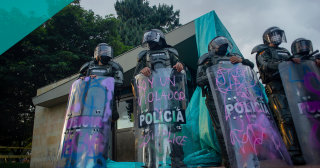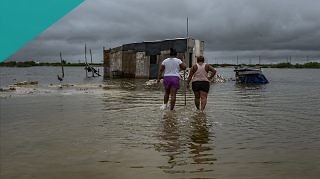WPS advocates must not allow gender to be instrumentalized within hypermasculine, hypermilitarized, and over-securitized approaches to security.
Author: Taylor Hynes
-
-
There has been an increase in UN agency discourse on gender, conflict, and climate. However, these concepts are still treated as discreet phenomenon in practice.






